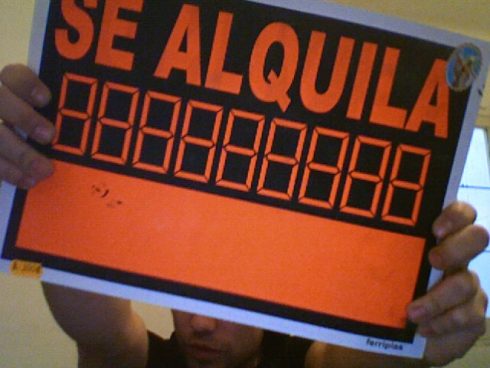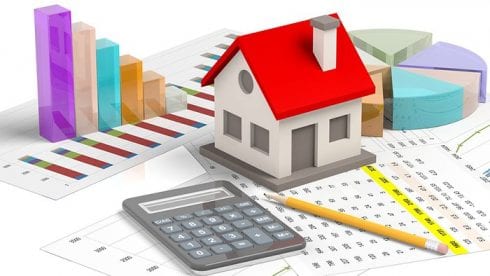AT the start of 2015, the Junta de Andalucia aims to pass new legislation to regulate the short-term rental market, raising standards for tourists and requiring owners to register apartments and declare earnings.
Since 2012, changes to regional laws regarding residential tenancies have given rise to a legal vacuum in the holiday-home rentals market in Andalucia, leaving owners wondering about the legality of their situation and holidaymakers at risk of letting sub-standard accommodation with no straightforward right of recourse.
Now, the Junta de Andalucía is aiming to introduce new regulations by January 2015 that the regional secretary for tourism and commerce, Rafael Rodríguez, believes, “will be an important instrument to promote a large part of tourism activity that, at present, is carried out in a clandestine way, off the books.”
Hotel owners have long lobbied for such a law to fight against what they see as unfair competition from private individuals who own properties that tourists want to rent, but who do not have to meet the same standards, or pay the same taxes, as hospitality professionals.
According to data released at the end of November by the leading online holiday rental website, HomeAway, the private rentals market was worth nearly two billion euros in Andalucia over the last three years, including spending in the region’s bars, restaurants, and shops by the millions of tourists who visit every year.
Data from Spain’s National Statistics Institute showed there were almost 78,500 apartments rented for short-term periods to holidaymakers across Andalusia in 2013, 5.7% more than the previous year. Together, they accounted for over 696,000 beds and more than 6.8 million nights of stay, a 4% rise over 2012.
Adolfo Martos, a partner in the Costa del Sol law firm GAM Abogados, says the new law will affect residential properties rented to tourists for any more than 30 days in a year or that have been advertised via any means – such as website listings or through travel agents and other tourism-related businesses. However, if you solely rent to the same person for more than three months in a given year, you will not be affected by the change.
Properties used by visitors without money changing hands, for example by family members and friends, and those in rural areas (as per articles 47 and 48 of the Tourism Law of Andalusia) are exempt from the new law, while groups of three or more properties located in the same complex or building and belonging to the same owner will be regulated by separate rules governing ‘apartamentos turísticos’ (tourism apartments).
Adolfo notes that, apart from the obligation for owners to register such properties with la Junta, they will have to meet minimum standards of comfort – regarding furnishings, air-conditioning and heating, free Internet connections, and more – and will be subject to inspection by regional government inspectors. And any money earned from rentals will have to be declared as part of the owners’ income, with annual payments for residents and quarterly payments for non-residents of any taxes due.
With the risk of court orders and fines of between 2,001 and 18,000 euros for those who do not comply with the proposed legislation once it comes into force, Adolfo recommends that, if you do own property you regularly rent out to visitors, you either ensure you meet all the requirements or you avoid advertising and limit holiday rentals to no more than 30 days a year.
Erratum: In the previous version of this article, the sixth paragraph read “…residential properties rented to tourists on a regular basis (for a minimum of one calendar month and no more than three months a year) and that have been advertised via any means…” and the last paragraph read “…you either ensure you meet all the requirements or you take a break from holiday rentals for more than four weeks a year.” In response to reader comments, both paragraphs have been revised.









It’s not a new law. It’s a decree that will regulate Viviendas de Uso Turistico in Andalucía, exactly as they are doing in every other region. Much of Andalucía’s decree is fair, but there are a few points which are absolutely not fair or just (not mentioned in this article) and yet very important.
These were discussed at the industry round table event held by the association Apartsur, Spain-holiday.com, HomeAway and Airbnb last week.
And to mention, the only reason homes in rural areas are exempt, is because they are already regulated by the decree for Viviendas Rurales.
Our RentalBuzz blog on Spain-holiday.com covers these regulations in indepth detail.
More fines and inspections. Spain is one big draconian bully.
If the Junta de Andalucia get this new legislation right, it will be a first.
Why do non-residents have to pay their tax quarterly when it would be easier for them to pay it with their yearly wealth tax (renta)? This means their accountancy costs will be higher.
I note that rural properties are exempt which is interesting considering the Junta wanted to completely ban rural holiday letting at one point.
As usual, this scheme is big on punishment for non-compliance and I am not convinced that the Spanish authorities’ intentions are honourable. It sounds like another scheme to create government jobs and extract money out of people. How much are these licences going to cost?
I’m glad I don’t rent out my place in Spain.
You say rural properties are exempt, but can you tell what classifies as rural property?
Regulating holiday rentals is the right move, for an industry that is fast becoming the tourist’s choice of accommodation. It’s important to ensure what is on offer is of a good standard and meets with safety standards.
It’s actually been rolled out with success in other regions. However, in Andalucía and in the Canary Islands, there is a problem with hotel lobby groups trying to influence the decision of the local government.
Most of Andalucia’s draft decree is fair and correct, but there are a few conditions, which will make it difficult for some homeowners to apply for their licence. We are fighting to get these removed.
Rural properties aren’t exempt, they are regulated under a different decree.
It will be free to apply for your licence in Andalucía.
“Will be subject to inspection by regional government inspectors” Bet there will be a queue for that little sinecure.
Yes all applications will be subject to an inspection.
I own a property which I never rent out and spend less than 6 months of the year here. However I am obliged to pay a tax on this property which is based on the notional rental value of said property. Does this mean I will not have to pay this tax if I declare that I never rent the property out?
Hi . Are you able to clarify what this means in the article please?
” you either ensure you meet all the requirements or you take a break from holiday rentals for more than four weeks a year.”
Thanks
Sandra, I agree. So with the below, if you do not rent out for one month you can do what you want?
”With the risk of court orders and fines of between 2,001 and 18,000 euros for those who do not comply with the proposed legislation once it comes into force, Adolfo recommends that, if you do own property you regularly rent out to visitors, you either ensure you meet all the requirements or you take a break from holiday rentals for more than four weeks a year.”
If you rent your home out as tourist accommodation for more than 30 days per year, you will need to apply for a licence. It was 60 days, but was dropped down to thirty days. Basically if you rent your home out as tourist accommodation you WILL need to register it.
“More fines and inspections. Spain is one big draconian bully.”
So a government seeking to collect income tax is a bully now!! Only in Spain, eh Fred!?
Thanks Louise The wording is a bit confusing though. It reads as though you can take a break from renting “for four weeks or more” – maybe it’s just me!!
You definitely can’t take a break and get away without registering! You can read all about the regulations on Spain-holiday.com’s RentalBuzz blog. It’s under the homeowner’s section.
@Dref, only in my opinion. Feel free to disagree.
You’re opinion is correct. It’s bad enough in England – like a nanny state. More rules and regulations and jobs for the boys over here now. It used to be wonderful owning a property in Spain – not any more. Probably won’t rent out now as the tax and costs involved in preparing figures etc will increase, so either charge more and don’t get any rentals or simply stop because it won’t be worth it. So we’ll have even less people on our urb. spending money in the bars, restaurants, supermarkets etc. Less money for the electric and water companies etc etc etc. I think that we’re already taxed enough – everything we earn, then everything we spend, then all the other taxes. This is just my opinion for all you do-gooders
Louise, thanks for clearing that up, I have only just read the reply.
I had read Louise’s website. If that does not put you off buying to let in Spain not much else will!!! Different rules for the regions. I may just not bother renting out anymore, can’t be bothered with all of that.
I reiterate. Regulations are good. They will improve the quality of holiday rentals accommodation and protect renters. If you don’t agree you should be paying taxes on income, then you shouldn’t be renting a property in any country. The roll out hasn’t been well organised, but in most regions, the regulations are fair and it’s free to register your property in most. Whilst I understand the frustrations people have with change, going on about taxes and costs, making it not worthwhile, are unsubstantiated and incorrect.
What would be the next step in terms of registering? Wait until the legislation in Andalucia is in place or do it now? And how do I go about registering? I live in the UK with a villa in Andalucia. I have a lovely traditional home that benefits from sea breezes, fans and with very thick to balance its climate. It has done well without airconditioning for over 40 years and now that has to change- How sad and expensive this negative environmental impact will have on so many – a good time to be in the airconditioning business!